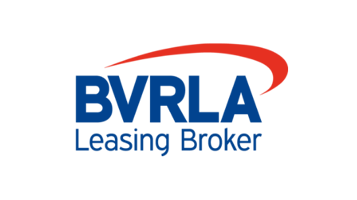10 Tips to Make the Most of Your Fuel
Our advice for better fuel economy
No matter how you source and fund your vehicle, you'll need to factor into your budget the other running costs for the vehicle including:
- Insurance
- Road tax (if applicable)
- Servicing and maintenance
- MOTs
- Fuel
Insurance
Insurance premiums are based on a number of different factors which usually fall into one of 2 categories: car and driver.
Under the car category, providers will take into account factors including the specific model you have chosen, its size, risk category, fuel type and engine size, among others.
For the driver, they'll consider your age, any medical conditions you have disclosed, your driving history, including any driving convictions, years you have been driving, any other insurance policy you have or are listed on, and your previous no claims discount.
As there are so many different factors taken into consideration there isn't a lot you can do to reduce your premiums, especially as any impact you can have will usually need a considerable length of time in order to take effect.

Road tax
If you own the vehicle you'll need to pay the full amount for the road tax of your vehicle. Depending on the model you've chosen and the size of its engine this can be a few hundred pounds annually. You can pay via direct debit over a set number of payments or in one upfront payment for the year.
When you lease a vehicle, the road tax will be paid by the lease funder at the amount that it was first taxed. If there's an increase in the amount of road tax payable on the vehicle during your lease then you may be charged for the difference.

Servicing and maintenance
All vehicles need regular servicing and maintenance work in order to ensure they're in top running condition. We recommend servicing the vehicle in line with the manufacturer’s guidelines, which will usually be annually or at a certain mileage. Most modern vehicles will pop up with a light on the dashboard when they require a service, though this might not always happen.
Whenever you notice a fault with or damage to your vehicle you should always get it checked as soon as you're able to. This will minimise the cost of further damage to the vehicle as well as ensure it's safe for you and your passengers.
MOTs
All vehicles over 3 years old will require an MOT annually. If you purchase a car or lease one for 3 years or longer then you'll need to factor in the cost of the MOT, as well as any repairs required if it fails the test. Depending on whether it needs any work completing, this can add up.
Fuel
The most regular car related payment that you'll usually be making is for fuel. Depending on the fuel type, number of miles you travel, your engine size, vehicle’s fuel economy and driving style, this can be quite costly, which is why we’ve put together our top tips for getting more miles for your money.
This article will focus on traditional fuel types, petrol and diesel, but if you'd like to know more about the cost of charging an electric vehicle then take a look at this piece.
Top 10 tips for better fuel economy
1. Don’t leave the engine idling
Even when you're not moving, if your engine is on it will be using fuel. Though this might not be as much fuel as if you were driving, it'll still reduce the miles per gallon (MPG) your car achieves.
If you're in slow moving, stop-start traffic, you might want to consider putting your hand brake on and turning the engine off while stopped for longer periods. This will stop you from using fuel and help maintain or increase the MPG you can achieve.
When stopping to drop someone off / pick them up or waiting in your vehicle for an extended period of time while stationary, we would suggest turning off the engine. Again, this will stop you from using fuel when you aren't moving and help improve your fuel usage.
Some modern vehicles come with stop-start technology which automatically reduces the time you spend with your engine idling when in traffic as, if correctly used, it will turn off the engine when stationary and the brake is applied.
2. Keep it light
The heavier your vehicle is, the more effort that's required to move it, which means more fuel is used. We recommend trying to keep the vehicle as light as possible and reducing your excess weight.
This could include removing any roof boxes and bike or luggage racks from the vehicle when not in use, taking any unnecessary cargo out of the vehicle and only towing a trailer when you need to use it.
3. Stick to the speed limit
Keeping to the speed limit isn't just a legal requirement but it also helps with fuel consumption. Speeding can significantly increase the amount of fuel your vehicle's using, which is another reason to keep to the speed limit.
If your car offers cruise control then you might consider using this on roads where traffic is moving at a constant speed. We advise setting it a couple of miles below the speed limit in order to ensure you're not speeding.

4. Smooth acceleration and braking
Rapid, harsh braking and acceleration require a lot of engine power, and this uses more fuel to action than a steadier press of the pedals.
Though it can't always be avoided, anticipating and preparing for the traffic ahead can help you with smoother braking and acceleration. For example, if you can see several traffic lights over a short distance or a long queue of traffic rather than gaining some speed then having to stop repeatedly, try travelling at a slower speed and gently apply the brakes as needed.
5. Keep on top of vehicle maintenance
As mentioned above, regular servicing and maintenance will keep your vehicle in top condition making it as safe and efficient as possible. When a vehicle is in its best running condition it will be at its most fuel efficient as well.
Again, we advise servicing your car in line with the manufacturer’s guidelines and getting any maintenance work completed as soon as you're able to after noticing it's needed.

6. Check your tyres
We recommend checking your tyres regularly for a number of reasons, one of which is that when your tyres are not inflated to the recommended level it can reduce your fuel efficiency by as much as 5%.
We advise you to check your tyre pressure once a month and you can find a detailed guide to doing so here.
7. Shut the windows
The more aerodynamic a vehicle is, the better the fuel economy will be; this is one of the reasons that the fastest cars on the market tend to be smaller with a sleeker body shape.
When your car windows are open, it increases the drag on the vehicle and stronger wind resistance, which means it takes more effort for your vehicle to move at the same speed and so more fuel is needed to power this.
In general, having your windows open at lower speeds doesn’t have a huge impact, however we recommend closing the windows at 40 mph and over.
8. Turn the heating off
Heating and air conditioning, on warmer days, use engine power to operate their systems to keep you at the optimum temperature which means that they use fuel. The impact on your MPG is especially noticeable when you're travelling at lower speeds.
However, we still recommend using the air conditioning or heating over opening the window to change the vehicle temperature.
9. Change Your air filters
Another thing that can make your engine work harder than it needs to is having dirty air filters, and harder work for the engine means less MPG for your car.
You should follow the manufacturer’s guidelines to change these as needed to ensure you get as many miles out of a full tank as you can.
10. Combine multiple journeys
A hot engine is a more efficient one as your car battery works better in warmer temperatures.
Depending on the time of year, the starting temperature of your vehicle and its engine might be fairly cold, which is why we recommend combining journeys where you can, into one longer trip. This will keep your engine warm and so working more efficiently and using less fuel.
Additional Tips
There are a few other habits to help keep your fuel bill down, and although they didn’t make it into our top 10 we still think they're worth a try.


Fuel rewards card
Many petrol stations, especially those attached to a supermarket, offer a rewards scheme that can give you cheaper fuel. For example, some of the most popular supermarkets have an offer where if you spend a certain amount in store, you’ll receive a discount at the petrol pump.
Local garages and chains might offer a scheme for loyal customers, like fill up 5 times and get a discount on your next visit.
Keep off the brake
Even when you don’t think you’re applying pressure, keeping your foot resting against the brake pedal can cause mechanical drag which reduces your fuel economy. We recommend keeping your foot off the brake pedal entirely unless you're actively braking.
Tap the fuel nozzle
Once you’ve stopped the flow of fuel at the petrol pump, you should hold the nozzle in place for a little longer and even give it a little tap or shake to ensure you get every last drop. This won’t massively increase your fuel efficiency but will give you a little extra.
Tighten your fuel cap
When your car is turned on, the vehicle gets a little hotter and if your fuel cap isn't tightened fully, you might lose some fuel from it through evaporation.
You should tighten the fuel cap as much as possible when you’ve finished at the petrol tank so that it's fully secure, and when the vehicle cools down, any fuel that evaporated will return to liquid in the tank.
Don’t drive
The best way to save money on fuel is to use as little as possible. If you're just travelling a short distance and don't need to carry a heavy load then consider if you could walk or cycle. Alternatively, if it's a journey you regularly make, like going into the office, then you might consider travelling with someone you can carpool with, taking it in turns to drive and therefore cutting down on your fuel bill.
For more of our expert driving tips head back to our guides homepage or check out our latest blogs.
Read our reviews See what our customers say
Car leasing guides Read our helpful guides
Refer a friend And both get an Xcellent reward!
As featured in














